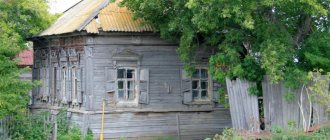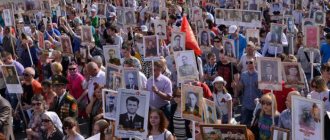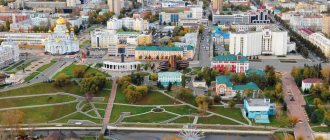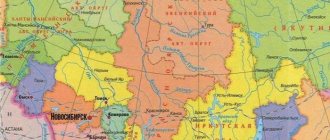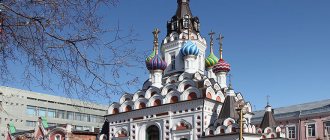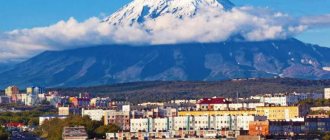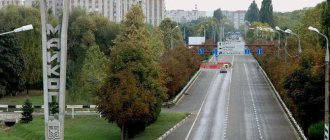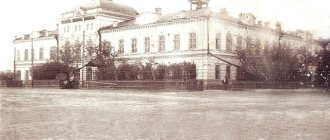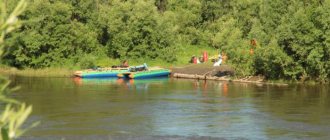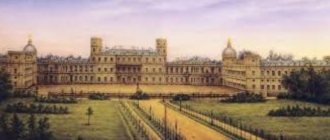Holiday calendar, signs, dates and events for every day of the year - folk calendar, Orthodox calendar, church calendar, eastern calendar, astrological calendar, lunar calendar, industrial calendar, as well as state and professional holidays, including significant World and International holidays and public holidays , folk holidays and omens, and other equally interesting and unusual holidays, dates and events of the year, zodiac signs, dream books and much more.
Calendar for 2022
| January | ||||||
| Mon | W | Wed | Thu | Fri | Sat | Sun |
| February | ||||||
| Mon | W | Wed | Thu | Fri | Sat | Sun |
| March | ||||||
| Mon | W | Wed | Thu | Fri | Sat | Sun |
| April | ||||||
| Mon | W | Wed | Thu | Fri | Sat | Sun |
| May | ||||||
| Mon | W | Wed | Thu | Fri | Sat | Sun |
| 1 | ||||||
| 2 | 3 | 4 | 5 | 6 | 7 | 8 |
| 9 | 10 | 11 | 12 | 13 | 14 | 15 |
| 16 | 17 | 18 | 19 | 20 | 21 | 22 |
| 23 | 24 | 25 | 26 | 27 | 28 | 29 |
| 30 | 31 | |||||
| June | ||||||
| Mon | W | Wed | Thu | Fri | Sat | Sun |
| 1 | 2 | 3 | 4 | 5 | ||
| 6 | 7 | 8 | 9 | 10 | 11 | 12 |
| 13 | 14 | 15 | 16 | 17 | 18 | 19 |
| 20 | 21 | 22 | 23 | 24 | 25 | 26 |
| 27 | 28 | 29 | 30 | |||
| July | ||||||
| Mon | W | Wed | Thu | Fri | Sat | Sun |
| 1 | 2 | 3 | ||||
| 4 | 5 | 6 | 7 | 8 | 9 | 10 |
| 11 | 12 | 13 | 14 | 15 | 16 | 17 |
| 18 | 19 | 20 | 21 | 22 | 23 | 24 |
| 25 | 26 | 27 | 28 | 29 | 30 | 31 |
| August | ||||||
| Mon | W | Wed | Thu | Fri | Sat | Sun |
| 1 | 2 | 3 | 4 | 5 | 6 | 7 |
| 8 | 9 | 10 | 11 | 12 | 13 | 14 |
| 15 | 16 | 17 | 18 | 19 | 20 | 21 |
| 22 | 23 | 24 | 25 | 26 | 27 | 28 |
| 29 | 30 | 31 | ||||
| September | ||||||
| Mon | W | Wed | Thu | Fri | Sat | Sun |
| 1 | 2 | 3 | 4 | |||
| 5 | 6 | 7 | 8 | 9 | 10 | 11 |
| 12 | 13 | 14 | 15 | 16 | 17 | 18 |
| 19 | 20 | 21 | 22 | 23 | 24 | 25 |
| 26 | 27 | 28 | 29 | 30 | ||
| October | ||||||
| Mon | W | Wed | Thu | Fri | Sat | Sun |
| 1 | 2 | |||||
| 3 | 4 | 5 | 6 | 7 | 8 | 9 |
| 10 | 11 | 12 | 13 | 14 | 15 | 16 |
| 17 | 18 | 19 | 20 | 21 | 22 | 23 |
| 24 | 25 | 26 | 27 | 28 | 29 | 30 |
| 31 | ||||||
| November | ||||||
| Mon | W | Wed | Thu | Fri | Sat | Sun |
| 1 | 2 | 3 | 4 | 5 | 6 | |
| 7 | 8 | 9 | 10 | 11 | 12 | 13 |
| 14 | 15 | 16 | 17 | 18 | 19 | 20 |
| 21 | 22 | 23 | 24 | 25 | 26 | 27 |
| 28 | 29 | 30 | ||||
| December | ||||||
| Mon | W | Wed | Thu | Fri | Sat | Sun |
| 1 | 2 | 3 | 4 | |||
| 5 | 6 | 7 | 8 | 9 | 10 | 11 |
| 12 | 13 | 14 | 15 | 16 | 17 | 18 |
| 19 | 20 | 21 | 22 | 23 | 24 | 25 |
| 26 | 27 | 28 | 29 | 30 | ||
Designations in the calendar: X - holidays; X—weekends; X - reduced working day by 1 hour;
General information about the Saratov region
Distinctive features .
The lands of the Saratov region began to be populated in the 17th century, when fortresses began to be built in the Volga steppes to protect against illegal armed groups of Kalmyks, Kyrgyz and other “free travelers.” Saratov itself, thanks to its advantageous position on the Volga River, became a large shopping center, and, simply put, a “roof” for all sorts of peddlers, buffoons, beggars and other homeless people. By the way, an interesting story came out with Saratov. At first it was founded on the left bank of the Volga, near the Saratovka River. But to give the city importance, on all foreign maps it was called nothing less than “Soratoff”. But in fact, there was a very ordinary den of thieves, for which in 1671 it was subjected to state punitive action to restore constitutional order, after which for another seventy years, not only people, but even animals did not live there.
Those who survived and miraculously did not drown during the crossing of the Volga settled in a fortress on the right bank. Thus, a new city appeared, which we now know as Saratov. In 1747, on the site of the old ashes, the Pokrovskaya Sloboda was founded, known to us today as the city of Engels.
Monument to the Saratov accordion, or “Boyanist”. Photo by bokaenko (https://fotki.yandex.ru/users/bokaenko/)
During the first five-year plans, factories began to sprout throughout the region like mushrooms after rain. And they produced everything here - tractors, combines, engines, and machine tools. This misunderstanding began to be seriously combated only in the 90s of the last century, as a result of which many of them were closed, and their areas were given over to environmentally friendly and safe shopping centers.
However, many enterprises are still operating, poisoning the environment, and the inaction of housing and communal services to eliminate garbage on the streets makes us talk about an environmental disaster looming in Saratov. Oh yes, we also forgot to mention the RosRAO landfill for radioactive waste disposal, located 12 km from Saratov...
Roller balls are made here
For those who are tired of breathing industrial emissions, there are still several untouched corners left in the Saratov region. These are the Khopersky Nature Reserve, the Khvalynsky National Park, the Atkarsky Nursery, several holy springs such as the White Key and over a hundred more natural monuments.
Khopersky Reserve: “Well, here I am in Khoper!” Photo by Galina (https://fotki.yandex.ru/users/galka-melikova/)
Geographical location . The Saratov region is located in the northern part of the Lower Volga region. It borders 7 regions. In the west these are the Tambov and Voronezh regions, in the north - Penza, Ulyanovsk and Samara, in the south - the Vologda region. In the east, the Saratov region borders on Kazakhstan.
From north to south, the Saratov region is cut by the Volga River, which divides it into the Right Bank and Left Bank parts. Many large and small settlements have grown here, and 11 of them are among the historical cities of Russia.
Night Saratov. Photo by andrey-euseew2011 (https://fotki.yandex.ru/users/andrey-euseew2011)
The relief of the region is flat. The local soils are rich in black soil, and agriculture plays an important role in the economy of the Saratov region. Local farmers are especially trying, supplying their products to markets and stores not only within their region. And there it is in great demand, because the word “farmer” has become a brand in Russia, in no way inferior to the notorious “nanotechnology”.
Population. The Saratov region has a population of 2,496,717 people. The vast majority (85%) are Russians. The second largest number are Kazakhs, fortunately the border with them passes here. It is a pity that the Kazakhs do not value their happiness and strive to escape from their native country, for the independence of which their proud Kazakh people fought for so long. And since the Kazakhs are too lazy to run far, they settle in border regions, like Saratov.
Despite such demographic assistance from Kazakhstan, the population of the region is declining every year. And this is not surprising, because the birth rate here cannot in any way overtake the mortality rate, which, it seems, is not going to give up primacy. A significant role in this is played by the “green serpent”, an addiction to which is increasingly affecting the inhabitants of the region. Accordingly, this affects both people’s health and the increase in drunken homicides. And drunkards don’t have to look for a reason for a long time - if only there was a person, there would always be a reason...
“There are so many golden lights on the streets of Saratov...” Photo by Alex_64 (https://www.skyscrapercity.com/member.php?u=445054)
Crime . The Saratov region is a peaceful and quiet region. No wonder it ranks 65th in the criminal rankings. But this does not mean that at night you can calmly walk through parks and squares - there are plenty of gopniks in Saratov. And the chavs too. Therefore, if you see a young girl approaching you with a bat in her hands, you better move your feet, and quickly.
Unemployment rate. Everything is fine with work in the Saratov region. During the years of Soviet power, so many factories were set up here that it would last for more than one generation. Of course, if they are not stolen. But facts are stubborn things, and they say that unemployment in the Saratov region is 5.38%, which is below the national average. The average salary in the region is 18.4 thousand rubles, which seems to be not much, but in comparison with other regions of the Volga Federal District it is even more or less, because in Udmurtia or Chuvashia salaries are even lower.
SLZ, or Saratov Elevator Plant
Property value. Housing in the Saratov region seems quite affordable. A one-room apartment can be bought for 1.2-1.5 million rubles, and a two-room apartment for 1.5-2.5 million. Quite a lot of housing is being built here, and there are both standard “panel” apartments and luxury complexes. If you do not want to buy an apartment, but prefer to rent a house, then a one-room apartment in Saratov will cost you 12-15 thousand rubles per month.
"Premium class" housing in Engels. Photo by Olga Agureeva
The climate of the Saratov region is continental, loving to present unpleasant surprises. If it's summer, then expect a drought. If it rains, then everything around you gets stuck in such impassable mud that it’s better not to stick your head out of the house. Snow does not fall often in winter, but when it does, it brings a lot of headaches to utility workers, who cannot deal with it until almost spring. Average temperatures throughout the year range from −8°C in February to +22°C in July. The average annual precipitation is 450 mm.
This is not a flood - this happens in Saratov after every rainstorm
Holiday calendar, dates and events for every day of the year
All state and professional holidays of Russia, including significant World and International holidays, and other equally interesting holidays, dates and events of the year... Holiday calendar for every day; Russian production calendar with holidays.
• What holiday is today and tomorrow, dates and events...
Transport connections of the Saratov region, roads and routes on the map
The region has developed transport links; people can get here by plane, train, or road transport.
State highways pass through the Saratov region:
- Syzran - Saratov - Volgograd (P228);
- Saratov - Voronezh - Kursk (A144);
- Saratov - Penza - Saransk - N. Novgorod (P158);
- Samara - Volgograd (P226).
Rail transportation to Russian cities:
- Astrakhan
- Saint Petersburg
- Novokuznetsk;
- Perm and others.
There are long-distance train routes to Belarus, Bulgaria, and Germany.
The Volgograd-Kazan railway passes through the regional center.
The map of the Saratov region with its districts shows communication routes within the region by buses, electric trains and minibuses.
Church calendar for every day
The church calendar is a time counting system used by the Orthodox Church to determine the sequence of church holidays and fasts in the annual cycle, as well as the corresponding services. Also the name of printed publications of various types, containing (in addition to general calendar functionality) elements of the monthly calendar and other materials of a liturgical and menological nature adapted to a specific year. The Church calendar contains two annual circles of events... Church calendar
Russian folk calendar for every day
Season: Winter - December, January, February.
Season: Spring - March, April, May.
Time of year: Summer - June, July, August.
Season: Autumn - September, October, November.
